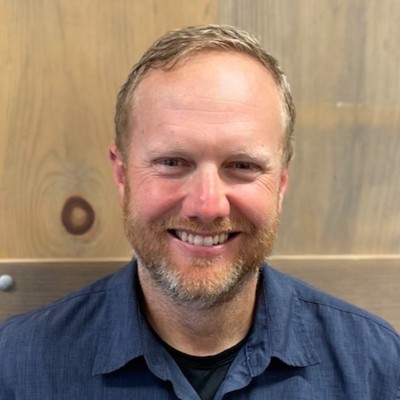By
ICMI Contributors
|
Date Published: April 26, 2023 - Last Updated July 12, 2023
|
Comments
Each month, we ask ICMI thought leaders and frequent contributors their thoughts on pressing issues in the contact center industry. We then share their responses with you.
Here is this month’s question:
It has been chronically difficult to find the staff to fill vacancies in the contact center industry, and even harder to find strong candidates who will slot in seamlessly within your organization. In your experience, what interview question or skills assessment has been invaluable for finding the strongest candidates?

Jeremy Watkin, Director of Customer Experience and Support at NumberBarn
As someone who’s part of a contact center that frequently interacts with customers in writing, I’m a big fan of writing assessments and typing tests, but have found that it can be a challenge to get candidates to complete these assessments when they are applying to many jobs at once. As a result, we’ve adapted a bit, spending more time screening by reviewing resumes along with a short phone conversation. By making that initial connection first, we are then able to have candidates complete the assessment before moving to an in-person or video interview.
The underlying theme here is flexibility. As you’re hiring, remember that you may need to continuously adapt your hiring process and approach. What worked last month or last year may not work as well today. We can ill afford to leave those vacant seats in our contact centers empty any longer than necessary.

Matt Beckwith, Director of Customer Service, FELLERS
Hiring the right person for each role is my most important responsibility. My team has a structured interview process that helps us identify candidates that will excel in each role. Each question and its rubric are defined and used consistently.
The process I use is extensive. Throughout my career, one question pair, however, has continued to carry an outsized weight: “Can you tell me about a time you, as a customer, have received great customer service?” and its twin, “Can you tell me about a time when you received poor customer service?”
When asked effectively (and for best results, in the early, phone interview stage), the responses can be eye opening. Having a conversation around these two questions helps our leaders identify candidates that are enthusiastic about service and have the ability to share a story (a valuable skill). The “poor service” question also allows you to understand the candidate’s ability to recognize poor service - a vital skill that makes coaching more effective. The real magic happens with this question because candidates tend to reveal more about their reaction to poor service than about the poor service itself. I have found that people who respond to poor service with grace, concern, and forgiveness are more successful in customer service roles than people who are quick to anger when they receive poor service.

Cheryl Gregware, AVP Customer Service Manager, ChoiceOne Bank
When interviewing potential candidates, we have found that there are three questions that we ask that the candidates are not really prepared for. This gives us a real insight into their personality that may not come through with standard interview questions.
- The first question is, “How do you like to be supervised - what qualities do you look for in your immediate supervisor?”
- The second is, “Tell us about a time when you were unable to finish all tasks or duties assigned to you for the day before your shift ended; how did you handle this?”
- The third is, “Tell us about a time when you had personal issues that pulled you away from work?”
The question about the supervisor stands by itself. Many times, the candidates must take time to compose an answer, and it is usually not polished. This helps us to get to know the candidates’ likes and dislikes without their polish. We can use this to determine if they will fit into the current atmosphere of the department. We also can use the information to decide which supervisor would work best with the candidate.
The next two questions can give us an idea of their work ethic without having to wait to determine it when they are hired. Since candidates are not prepared for the question, they often give a more exacting answer.
We have found that since using these questions we have had a better candidate fit for our department. By throwing in questions that they are not prepared for, we get a better feel for their personality.

Cynthia Long, Change Leader, Intuit
You can create a simple list of four open-ended questions that help find the right candidate - some are related to their craft skills/soft skills and others are related to culture.
As you build out new teams, and new service offerings, it is key to ensure that any new resource you bring in lifts the team and is driven by the small wins. The worst thing one can do is to bring in a resource that brings team morale down. And a bad match will always bring the rest of the team down.
Here are some soft skill questions:
A customer calls and says they need help with X (a service you support) but they only have 5 minutes. How would you handle this call?
The answer is key here. Is the resource talking about the technical solution? Or do they have empathy for the customer situation? I can teach tech; I cannot teach empathy. I try to hire the resources with the most empathetic responses, and judge the technical response based on their experience.
You are assigned to present to Executive Leadership. What is the most important aspect about the deck you present?
I ask this question so that I can see if they have the strategic ability to deliver the “care abouts” of the business - not just to clients, but also to others in the business
Here are some culture questions:
Describe your perfect working environment.
This open-ended question is great to see if their vision of work matches the corporate culture. If it is miles apart from the reality of the working environment, they might not be the best fit for your team.
A teammate asks you for help on XX, and you are actively taking support calls/emails yourself, what do you do?
This can give you clear insights into this resource’s feeling towards teamwork. If your Agents do not see other agents and the customer as part of the “team,” feels they are “other” to themselves, they might not be delivering customer empathy in a manner that you want for your support center.

Afshan Kinder, Partner, SwitchGear
As it has been often said, Your attitude, not your aptitude, will determine your altitude! This applies to any type of recruitment that you do. The best-fit candidate is one who has a “learning” mindset and a “can do” attitude. Look for candidates who are naturally customer-centric and empathetic.
Once you are clear on your “must haves”, then it becomes easier to set up interview questions and assessments. When there is desperation to find warm bodies it leads to unhappy employees, toxic cultures, and poor results. In my business experience, I have learned that it is better to be short on hiring but hire individuals who are a strong match. Don’t drop your standards.
There are lots of aptitude and personality testing applications, as well as situation simulation applications that test candidates. Think of the type of culture you want to build and sustain and then determine the right applications for you.
Finally, what technology can’t do for you is to gain fundamental knowledge in these two areas:
- Will the candidate be happy with work hours, salary and being tethered to a phone and computer in a controlled environment?
- Does the candidate have a warm and friendly tone of voice? How clearly do they speak and articulate in whatever language that you serve your customers in?
These are challenges that you can never overcome once the individual is hired.